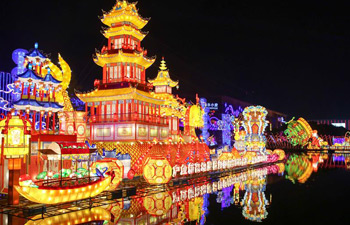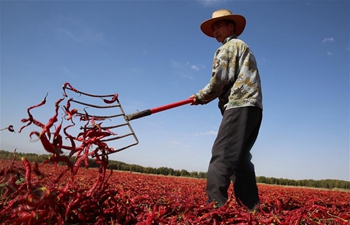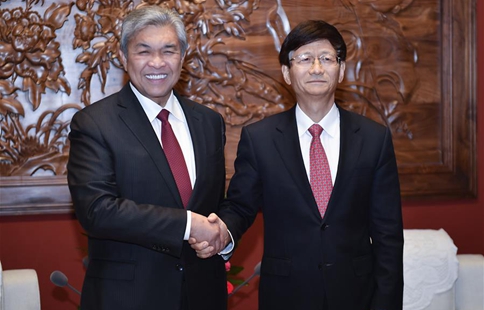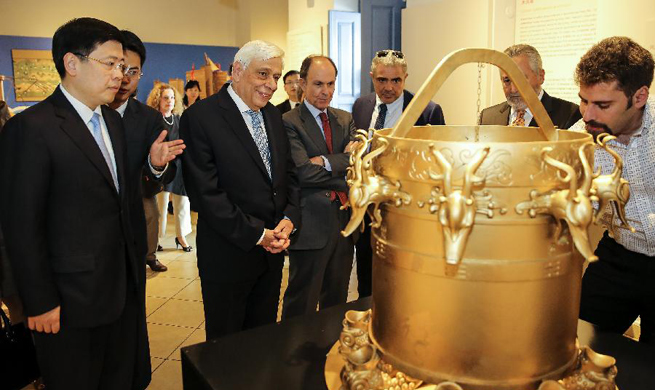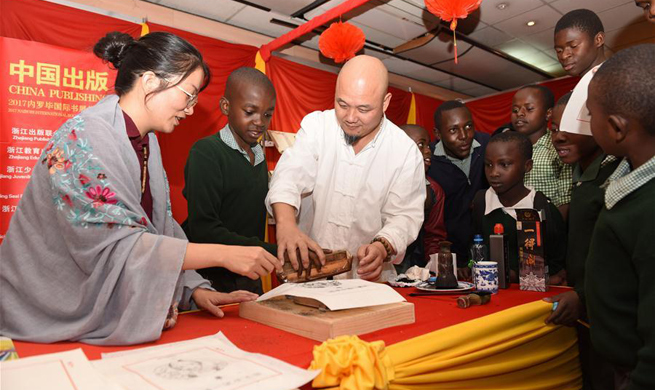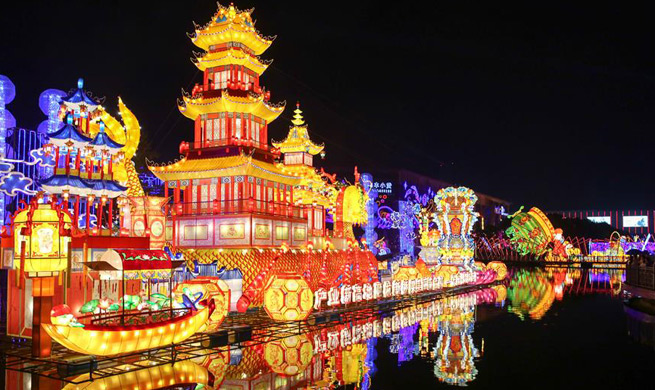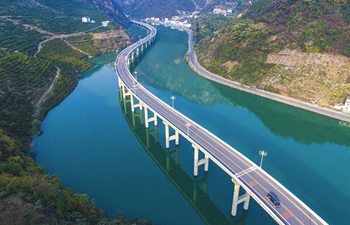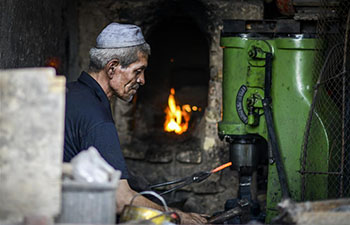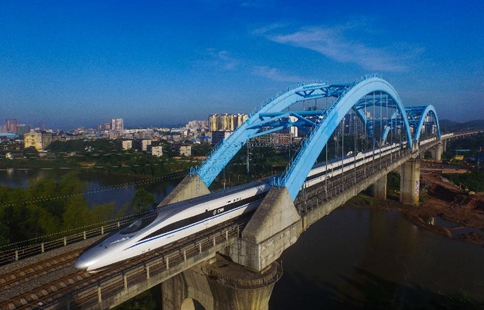by Xu Haijing, Zhao Bo
ADELAIDE, Australia, Sept. 28 (Xinhua) -- China is an active member of the United Nations Committee on the Peaceful Uses of Outer Space and is impressive in opening its space missions to other countries, said Simonetta Di Pippo, Director of the United Nations Office for Outer Space Affairs (UNOOSA).
Di Pippo made the remarks when having an interview with Xinhua on Wednesday during the 68th International Astronautical Congress (IAC), which opened on Monday in Adelaide, South Australia.
Di Pippo said China as an active member of the Committee has been attending with very solid delegations and also in term of technological expertise, "presenting a lot of new initiatives and ideas."
One of the new initiatives is the Belt and Road Initiative, proposed by China in 2013, aiming to build trade and infrastructure networks connecting Asia with Europe and Africa on and beyond the ancient Silk Road routes. It comprises the Silk Road Economic Belt and the 21st Century Maritime Silk Road.
"We are trying to negotiate in a bilateral way between UNOOSA and Chinese government how we can be part of the Belt and Road Initiative, an important initiative that China is putting forward. Clearly, we are focusing on the space segment, space aspect, space elements of the Belt and Road Initiative," Di Pippo said.
Meanwhile, the UN agency is also about to begin discussion on how China can be supportive in the United Nations' big initiative, which is to link space as a tool for the fulfilment of the 17 Sustainable Development Goals (SDGs) and therefore the 2030 Agenda for Sustainable Development.
"We have signed several agreements with different Chinese institutions ranging from disasters management and emergency response, the use of space-based data, and the infrastructure of disasters management and emergency response, up to issues related to opening up of the scientific data to everyone in the world, cooperating in exploration and innovation," Di Pippo said.
She said China is co-chairing an important action team to prepare for UNISPACE+50, a meeting to be held next year marking the 50th anniversary of the first UN Conference on the Exploration and Peaceful Uses of Outer Space (UNISAPCE) held in Vienna in 1968.
"China plays a very important role in this (co-chairing the meeting)," she said.
Di Pippo is especially impressed by China's efforts in trying to open up its space missions to everyone, particularly to the developing countries through the cooperation with UNOOSA.
"We have a very interesting agreement since last year with China Manned Space in the field of human space flight. China Manned Space, through the agreement we have, is opening up China's future space station to everyone in the world, especially to the developing and emerging countries."
An announcement for the coming experiment by developing countries and using Chinese space station is expected later this year.
Di Pippo said she expected China to become a big player in the exploration of the solar system and beyond, including sending automated spacecraft and spaceships towards other bodies of the solar system and sending humans at a certain point of time.
"The continuous and increased engagement of China in the future exploration of the solar system will help the country to develop even more, and for sure will help us through the strong agreements that we have with the Chinese government to help developing countries," she said.
"So it's a very good global approach. The discussions that we are having inside the Committee on the Peaceful Uses of the Outer Space are always very constructive from the Chinese delegation, because clearly the global exploration of the solar system can only be global. So all the main players have to work together."





